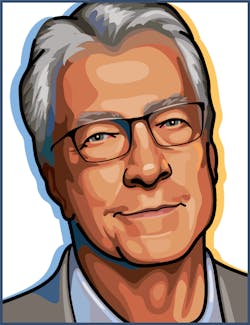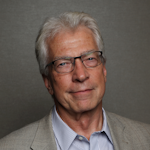How to get a photonics education: 10 resources on where to go and why

Here's a list of ten resources for students considering undergraduate, graduate, or technician programs, including our interviews with the deans and other leaders of schools offering an education in photonics.
1. How to begin a career in photonics: Students interested in a career in optics and photonics should research which institutions are a geographic, academic, and financial fit; which institutions offer a fast track to industry through collaborative programs; and whether or not the technician option makes more sense.
2. Optics and Photonics Education Directory: A comprehensive, global resource With more than 350 international listings and nearly 150 in the United States alone, the Directory is a joint public service effort by SPIE and OSA.
3. Technician education helps meet staffing needs of the photonics community: an interview with Dr. Chrys Panayiotou, the director and principal investigator of the Laser & Fiber Optics Southeast Regional Center (LASER-TEC, www.laser-tec.org), located at Indian River State College in Fort Pierce, FL.
4. Diversity in photonics strengthens society: An interview with Dr. Robert Alfano, Director and Founder of the Institute for Ultrafast Spectroscopy and Lasers (IUSL) at The City College of New York (CCNY). He is well known for his discovery of the supercontinuum, but less well known for his important role in advancing women and minorities in science and technology.
5. University of Central Florida--Joining research, teaching, and entrepreneurship to advance photonics: An interview with Dr. Bahaa Saleh who heads one of the major optics and photonics teaching colleges in the U.S. He is dean, director, and professor of optics at the College of Optics and Photonics, CREOL, at the University of Central Florida (UCF).
6. University of Rochester--Collaboration and excellence are the keys to educating photonics professionals: An interview with Dr. Xi-Cheng Zhang, director of the Institute of Optics at the University of Rochester, a leading optical center that has had a major impact on the optics and photonics community.
7. University of Arizona--Making things in academia: First of a two-part interview with Dr. Tom Koch, dean of the College of Optical Sciences at the University of Arizona, the third of the three U.S. universities granting advanced degrees in optics and photonics.
8. Caltech: The study of energy and sustainability reveals many opportunities in photonics: An interview with Dr. Harry Atwater of the California Institute of Technology (Caltech) because of the Institute's reputation for scientific and technical excellence. He is also director of the DOE Energy Frontier Research Center on Light-Material Interactions in Solar Energy Conversion (LMI-EFRC).
9. Shanghai Institute of Optics--A rich history of photonics research continues to bear fruit: an article by Dr. Ruxin Li, director of the Shanghai Institute of Optics and Fine Mechanics.
10. And finally, here is our contributing editor again, Dr. Milton Chang, on Why photonics: Encouraging a career in photonics. For how to use your education and experience to start your own photonics company, read his book: Toward Entrepreneurship: Establishing a successful technology business.

Conard Holton
Conard Holton has 25 years of science and technology editing and writing experience. He was formerly a staff member and consultant for government agencies such as the New York State Energy Research and Development Authority and the International Atomic Energy Agency, and engineering companies such as Bechtel. He joined Laser Focus World in 1997 as senior editor, becoming editor in chief of WDM Solutions, which he founded in 1999. In 2003 he joined Vision Systems Design as editor in chief, while continuing as contributing editor at Laser Focus World. Conard became editor in chief of Laser Focus World in August 2011, a role in which he served through August 2018. He then served as Editor at Large for Laser Focus World and Co-Chair of the Lasers & Photonics Marketplace Seminar from August 2018 through January 2022. He received his B.A. from the University of Pennsylvania, with additional studies at the Colorado School of Mines and Medill School of Journalism at Northwestern University.